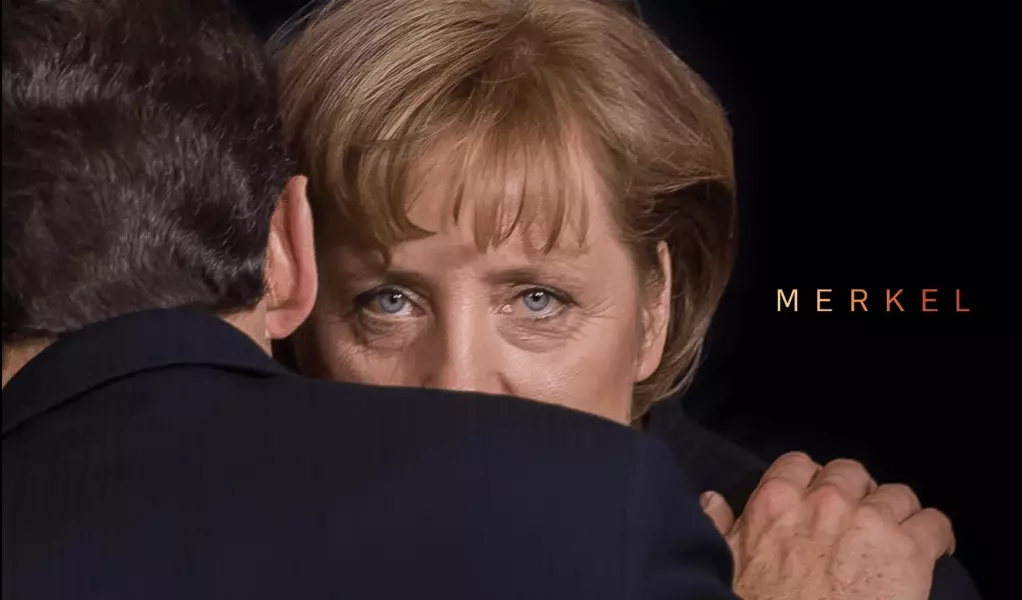As Germany stands on the brink of a significant political transition with the potential election of a new chancellor, the spotlight turns to an incisive documentary that investigates the impactful legacy of Angela Merkel, who led the country for an unprecedented 16 years. Directed by Eva Weber, “Merkel” offers a compelling retrospective of a transformative political figure whose decisions not only shaped the course of German politics, but also resonated across Europe and the globe.
One of the film’s pivotal discussions revolves around Merkel’s controversial decision during the 2015 refugee crisis, when Germany welcomed over a million immigrants fleeing devastating civil wars, particularly in Syria. This bold move, framed by Merkel as a humanitarian necessity, sparked intense debate and led to the rise of far-right factions such as the Alternative für Deutschland (AfD), which capitalized on public discontent toward immigration policies. The documentary painstakingly dissects this moment, analyzing its far-reaching social and political repercussions, suggesting that it not only altered the landscape of German society but also reshaped her legacy.
The documentary utilizes extensive archival footage and interviews to paint a rich, nuanced portrait of Merkel. Born in East Germany as the daughter of a Lutheran pastor, her upbringing amid a repressive regime significantly influenced her pragmatic approach to politics. With a background in quantum chemistry, Merkel’s analytical mindset allowed her to navigate complex political terrains skillfully, enabling her to rise above her male counterparts. The film presents her as a formidable leader who prioritized policy over ideology, demonstrating a mathematics-driven, methodical approach to leadership that set her apart in a sphere often dominated by overt ideological battles.
A notable aspect of Merkel’s chancellorship is the persistent double standard she faced as a woman in a male-dominated political environment. The documentary explores the relentless scrutiny and judgment she endured throughout her career. By highlighting her successes amid this backdrop, “Merkel” advocates for a political landscape built on sincerity and integrity, offering a narrative that not only celebrates her achievements but also critiques the societal barriers that women leaders often encounter.
“Merkel” includes interviews with a host of eminent figures, from fellow politicians such as former U.S. Secretaries of State Hillary Clinton and Condoleezza Rice, to journalists and analysts who provide a rounded view of her influence. Their insights serve to contextualize Merkel’s chancellorship within a broader political narrative—one that contrasts her steady hand against fluctuating tides of global politics. This aggregation of perspectives contributes to a more comprehensive understanding of her impact not just in Germany, but as a counterbalance to authoritarian trends emerging under figures like Donald Trump.
As Merkel’s tenure draws to a close, attention turns to Friedrich Merz, the expected successor and head of the Christian Democratic Union. The film hints at an intriguing political dynamic: Merz, whose aspirations were often overshadowed by Merkel’s prominence, now faces the challenge of upholding her legacy while navigating contemporary issues such as defending Ukraine. The documentary leaves the audience privy to the question of whether Merz can embody Merkel’s approach or will succumb to the pressures of a changing political landscape.
The documentary “Merkel” serves not only to celebrate the achievements of one of Europe’s most consequential leaders but also to provoke thought about the stewardship of democratic ideals in an evolving political arena. As Germany prepares for a new era of governance, the reflections on Merkel’s leadership underscore the importance of integrity, resilience, and a commitment to democracy. It becomes clear that her influence will echo far beyond her departure, shaping the future contours of German and European leadership for years to come.

